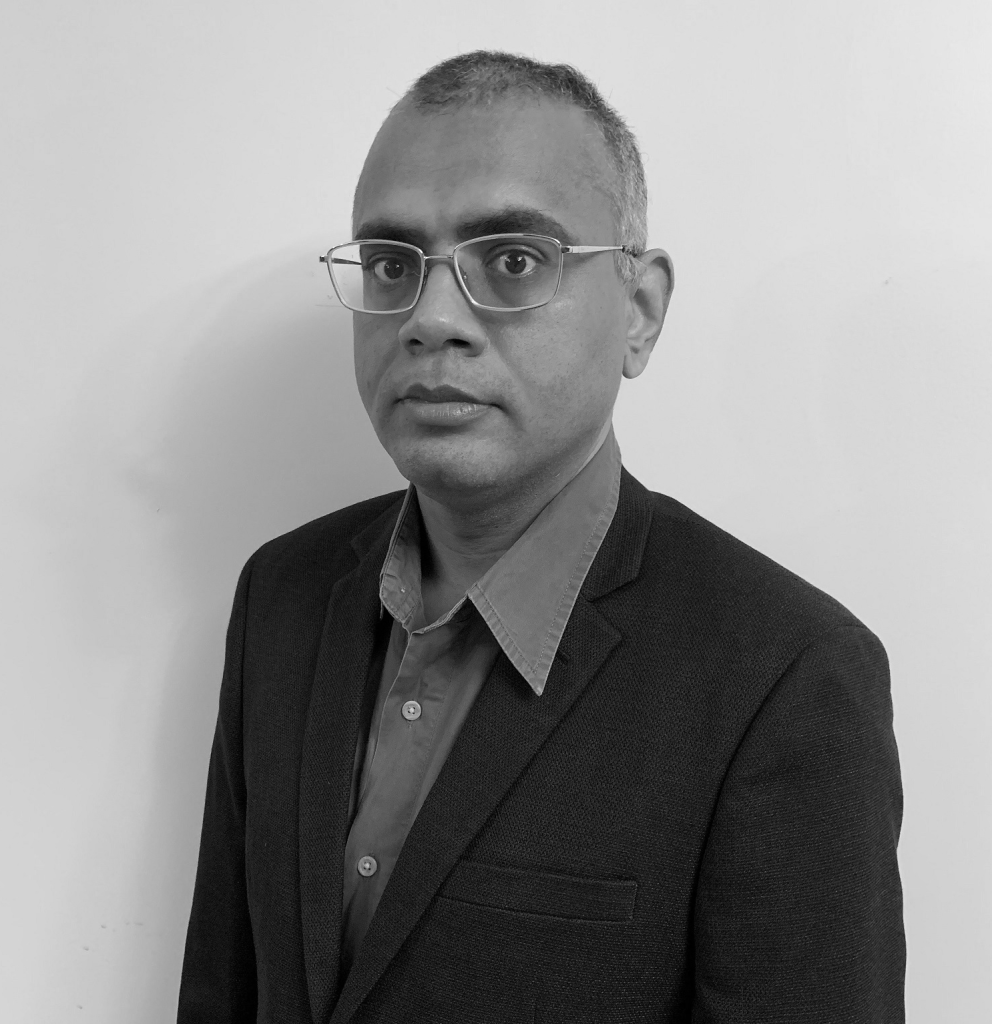Our team

Pukhraj Singh
Director
Since a decade, Pukhraj has carried the alter ego of a ‘cyber geostrategist’ (for the lack of a better term). He is a cyber threat detection engineer with two decades of experience. He runs a cybersecurity operations centre in the day and transforms into a geopolitical wonk at night.
He is formally trained in cyber threat intelligence, detection engineering, malware analysis, cybersecurity operations, Australian defence policy, Indo-Pacific multilateralism, national security strategy, military doctrine, information operations and strategic communication. This unique combination of skills imparts him with a different worldview.
After the 26/11 terror attacks of 2008, Pukhraj became the first ‘lateral entrant’ to be inducted from the private sector into the Indian signals intelligence agency NTRO under the Prime Minister’s Office.
He was the counterintelligence leader for a nascent Indian cyber defence division investigating GhostNet, the sweeping Chinese cyber espionage operation discovered in 2008. This was long before such Chinese activity attracted mainstream attention. Pukhraj was also the incident commander assessing Stuxnet’s impact on India in 2010, an effort which led to the creation of the National Critical Information Infrastructure Protection Centre. At NTRO, his output was consumed by the highest offices and influenced the bilateral dialogues between Dr. Manmohan Singh and Hu Jintao.
While Pukhraj left NTRO in 2013, he tipped off the Indian government on the intrusions into the Kudankulam Nuclear Power Plant and Indian Space Research Organisation (ISRO) in 2019. The massive intrusion at ISRO coincided with the crash of the lunar mission Chandrayaan II, which left him searching for answers.
From 2009 onwards, he has witnessed first-hand the role which cyber operations play in shaping the world order. Since then, Pukhraj has mostly been an autodidact when it comes to gaining an interdisciplinary knowledge of cyber policy.
His byline made its way to all the national Indian broadsheets like the Hindustan Times, The Indian Express, The Tribune, Deccan Herald, Outlook, The Print and many others. He trained senior Indian military commanders, participated in Track II diplomatic dialogues on cyber policy and advised the Indian government on its draft cyber doctrine. He has been published by the Australian Defence College, Australian Strategic Policy Institute and US Military Academy.
In 2021, Pukhraj, his partner and their son moved to Brisbane, Australia, under the Distinguished Talent program. He has made steady inroads into the Australian discourse. He has participated in national cyber crisis management exercises, information exchanges and capacity building initiatives of the Australian government. In November 2023, he will be finishing his master’s degree in cyber geostrategy from UNSW Canberra, at the Australian Defence Force Academy.
His corporate work experience in cybersecurity spans a host of global technology companies in Canada, India, Malaysia and Israel. In his past life, Pukhraj was known as the founder of Abroo, a now-defunct socio-political initiative for the empowerment of the Dalits of the Indian Punjab. He has also anointed himself as an amateur poet and aficionado of Punjabi Sufi music.

Anand Venkatanaryanan
Director
Anand Venkatanaryanan is a cybersecurity and privacy researcher.
He is also a co-author of a critically acclaimed book on information warfare, The art of conjuring alternate realities: How information warfare shapes your world (HarperCollins) — which laid out in detail how modern day narrative dominance techniques work at scale by fusing Big Data powered Target Audience Acquisition and the A/B testing of appealing content via the Objective-Narrative-Campaign-Context-Content framework (ON3C).
He has two decades of experience and has worked in across multiple domains including telecom protocols, network engineering, device drivers for graphics chips, Linux device drivers for filesystems and storage management products
He is a public interest technologist and has written extensively about cybersecurity and privacy issues in several Indian publications including Medianama, Bloomberg Quint, The Quint, The Ken, The Business Standard, Hindustan Times, The Times of India, The Wire and Asia Times.
He was the first one to break the story of the hack of Kudankulam nuclear reactor in the public domain by the North Koreans using the D-track malware, and has written extensively about biometric identity systems and their vulnerabilities.
He was called as an expert witness before the Supreme Court of India in India’s digital identity (Aadhaar) case, the Pegasus case for petitioners who were infected by the malware, and has also deposed before the Kenyan High Court on their digital identity project called Huduma Namba.

Sara-Jayne Terp
Advisor
Sara-Jayne Terp has undertaken ground-breaking research in applying information security practices to defend against disinformation and other online harms, including extremism.
She has run large incident responses, set up response systems for election- and health-based cognitive security around the world, advise companies on disinformation risk management, and have built a body of research and tools for running and operating cognitive security operations centres, including the DISARM (formerly AMITT) frameworks for rapidly sharing disinformation data.
Sara-Jayne has taught cybersecurity and cognitive security at the University of Maryland and was a Senior Fellow at the Atlantic Council. She was also involved in the development of an independent disinformation rating system with the Global Disinformation Index, served as the Chief Platform Architect for UN Global Pulse, and was an Adjunct Professor at Columbia University teaching Data Science for Development and Social Change among other courses.
She has master’s degrees in Artificial Intelligence, and Pattern Analysis and Neural Networks. Her technical background includes information fusion, crowdsourcing, unmanned systems (including human-machine teaming), data governance, nation-state development, and crisis response.
Check out this awesome profile of hers in the Wired magazine: One Data Scientist’s Quest to Quash Misinformation.
